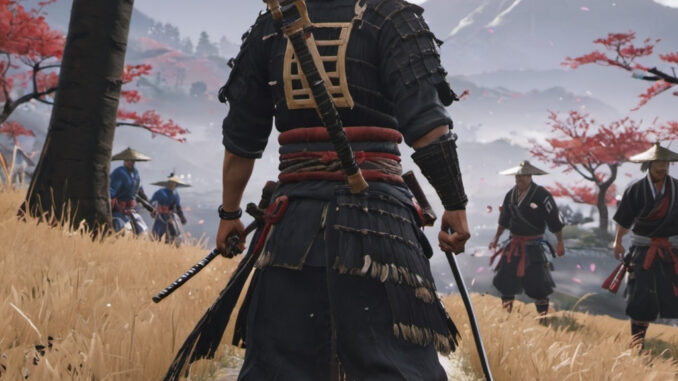
Ghost of Tsushima stands as a landmark achievement in open-world game design, surpassing the likes of Horizon Zero Dawn and Days Gone in its focused and refined approach. Unlike many open-world titles, which often feel bloated and overwhelming, Ghost of Tsushima offers a streamlined experience that immerses players in Jin Sakai’s journey. The game's world design and gameplay mechanics are meticulously crafted, ensuring that every activity and discovery feels meaningful.
Sucker Punch’s PS4 exclusive draws heavily from the visual and thematic influences of Akira Kurosawa and classic samurai tales. While not entirely original, it excels in executing familiar design conventions with exceptional quality. This accomplishment has not gone unnoticed, with Ubisoft’s upcoming Star Wars Outlaws citing Ghost of Tsushima as a major inspiration. In a gaming landscape dominated by titles striving to emulate The Legend of Zelda: Breath of the Wild or Baldur’s Gate 3, it's refreshing to see Ghost of Tsushima recognized for its unique strengths.
The game's concise playtime, around 30–40 hours to complete everything, including earning the Platinum Trophy, sets it apart from Ubisoft's traditionally expansive titles. Ubisoft’s games, such as Assassin’s Creed Odyssey, Origins, and Valhalla, are often packed with content that can feel excessive and disconnected from the narrative. In contrast, Ghost of Tsushima ensures that every landmark, enemy encampment, and secret discovery contributes to the player's growth and the story's progression. This focused approach prevents the experience from becoming a grind and maintains a sense of personal progression.
Ghost of Tsushima’s success lies in its ability to provide a rich and immersive experience without overwhelming the player. It offers a variety of side activities, from greeting foxes to relaxing in hot springs, that enhance the core narrative rather than detract from it. This philosophy is echoed in the design of Star Wars Outlaws, where creative director Julian Gerighty emphasizes the importance of aligning the player fantasy with the gameplay and story.
The game's design choices have set a new standard for open-world games, influencing titles like Assassin’s Creed Shadows, which aims to balance expansive world-building with a curated experience. Ubisoft’s willingness to explore new approaches, as seen with Star Wars Outlaws, suggests a shift towards more focused and narrative-driven open-world games. This is a welcome change, as players increasingly seek meaningful experiences rather than checklist-driven gameplay.
In conclusion, Ghost of Tsushima has perfected the open-world formula by delivering a concentrated and purposeful experience. It stands as a testament to the power of thoughtful game design and has set a high bar for future titles. As developers and players continue to appreciate its achievements, Ghost of Tsushima's influence will undoubtedly shape the future of open-world gaming.
Leave a Reply